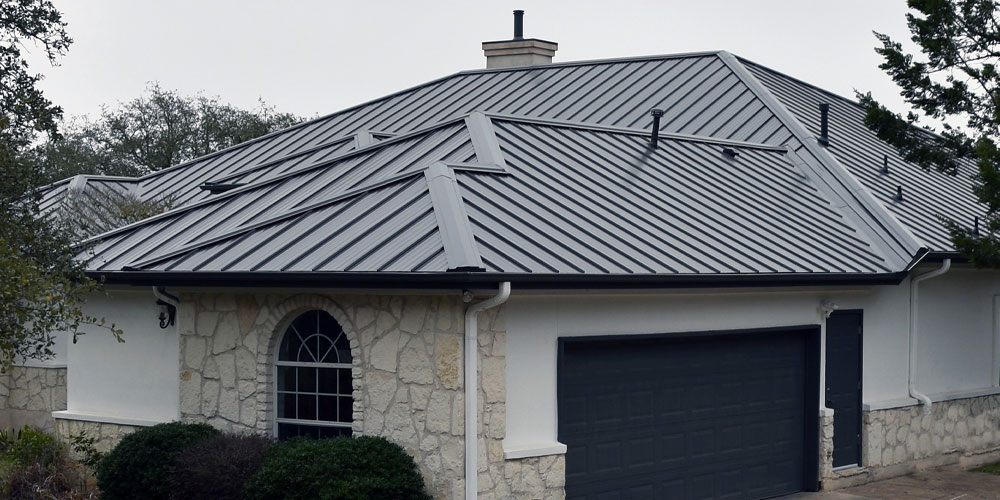When planning a roof installation in Pennsylvania, it's not just about choosing the right materials or hiring the most affordable contractor. State and local building codes play a significant role in how a roof is designed, installed, and inspected. These regulations ensure the structural integrity and safety of the roofing system, especially given Pennsylvania’s diverse climate conditions. Whether you’re a homeowner preparing for a new roof or a contractor looking to stay compliant, understanding these codes is essential. If you're looking for the best roof installation company in Pennsylvania, it’s crucial to choose a team that prioritizes full compliance with state and local regulations. For reliable, code-compliant roofing services in Lancaster and across the state, call (888) 414-6452.

Understanding the Purpose of Building Codes
Building codes in Pennsylvania are primarily adopted to ensure public safety, structural integrity, energy efficiency, and protection against the elements. These regulations are enforced at both the state and municipal levels, and they often align with national standards such as the International Residential Code (IRC) or International Building Code (IBC).
For roof installations, these codes impact everything from load-bearing requirements to fire resistance and ventilation. Contractors and property owners must ensure compliance with the applicable provisions before beginning any construction activity.
The Pennsylvania Uniform Construction Code (UCC)
The backbone of Pennsylvania’s building regulations is the Uniform Construction Code (UCC), which adopts portions of the IBC and IRC. Local jurisdictions may apply stricter requirements, so it’s essential to verify the specific codes that apply in your municipality.
Under the UCC, roofing projects generally require a permit unless classified as minor maintenance. Replacing decking, structural members, or performing a complete tear-off followed by reinstallation will likely necessitate inspection and approval.
Key Roofing Code Requirements in Pennsylvania
There are several specific roofing requirements outlined in Pennsylvania's building codes. These standards are critical for any roof installation project to pass inspection and avoid penalties or rework.
Roof Load Requirements
Pennsylvania experiences significant snowfall, especially in areas like Lancaster. As such, roof designs must accommodate snow loads specific to the region. The IRC provides tables that define minimum snow load requirements by area, and these must be strictly followed during installation.
Roof Slope and Drainage
Roof slope affects water runoff and overall durability. The code specifies minimum slopes depending on the type of roofing material. For example, asphalt shingles typically require a slope of at least 2:12. Additionally, proper drainage must be ensured using gutters, scuppers, and downspouts to prevent water accumulation and structural damage.
Ice Barrier Installations
In regions with freezing temperatures, including Lancaster, the code requires ice barrier underlayments at the eaves. This is especially important for preventing ice damming, which can lead to water infiltration and damage.
Ventilation Standards
Proper attic ventilation is necessary for maintaining energy efficiency and prolonging the life of roofing materials. The code mandates a balanced system of intake and exhaust vents based on attic size. This helps manage moisture levels and reduces the risk of mold and rot.
Fire Ratings and Material Standards
The roofing materials used must meet minimum fire-resistance ratings depending on the occupancy type and location. Most residential structures require a Class A or B fire-rated roofing system. All materials must also comply with ASTM standards or equivalent recognized guidelines.

Permit and Inspection Process
Before beginning a roof installation project in Pennsylvania, contractors or homeowners must apply for a building permit through the local code enforcement office. The application typically includes:
- A detailed project plan
- Description of materials to be used
- Structural drawings (if applicable)
- Contractor license and insurance details
Once the permit is issued, inspections will occur at designated stages, including decking replacement and final installation. Projects not built to code may be halted or forced to redo non-compliant work, increasing costs and project timelines.
Hiring a Code-Compliant Contractor
Choosing the right contractor is crucial for code compliance and overall project success. In Lancaster and surrounding areas, working with a certified, licensed roofing company ensures that all installations meet local and state requirements.
When evaluating contractors, look for the following:
- Proof of license and insurance
- Familiarity with Pennsylvania’s UCC and municipal codes
- Strong local reputation and verified customer reviews
- A detailed contract outlining compliance with building codes
- Warranties on both materials and labor
If you’re unsure where to start, calling (888) 414-6452 will connect you with the best roof installation company in Pennsylvania, known for high-quality workmanship and full regulatory compliance.
Benefits of Following Pennsylvania’s Roofing Codes
Complying with state and local building codes isn't just a legal requirement also provides lasting benefits to homeowners:
- Increased roof lifespan through proper design and materials
- Better energy efficiency with required ventilation and insulation
- Lower risk of water damage and structural failure
- Enhanced resale value with code-compliant documentation
- Reduced likelihood of insurance claim issues
Common Mistakes to Avoid
Despite the clear guidelines in place, many roof installations still fall short due to negligence or ignorance. Avoid the following mistakes:
- Skipping the permit process
- Using materials not approved for your local climate
- Ignoring proper ventilation
- Hiring unlicensed or out-of-state contractors unfamiliar with PA codes
- Failing to schedule required inspections
Working with experienced professionals who understand Pennsylvania’s unique building landscape will help prevent these common pitfalls.

Conclusion
Navigating Pennsylvania’s building codes for roof installation can be complex, but it’s a necessary part of any responsible roofing project. Whether you’re replacing an old roof or installing one on a new build, understanding local requirements helps ensure safety, performance, and long-term durability. To guarantee a code-compliant and hassle-free experience, consider working with the best roof installation company in Pennsylvania. Contact us today at (888) 414-6452 to schedule a consultation in Lancaster or anywhere in the state.
FAQs
What permits are needed for roof installation in Pennsylvania?
A building permit is usually required for full roof replacements or structural changes. Minor repairs may be exempt, but always check with your local code office.
Can I install a roof without hiring a licensed contractor?
While it’s legally possible in some municipalities, it’s not recommended. Hiring a licensed and insured contractor ensures compliance with Pennsylvania codes and often avoids costly mistakes.
How do snow loads affect my roofing design in Lancaster?
Lancaster falls within a snow load zone that requires roof systems to bear significant weight. Your design must accommodate this to meet building codes and prevent collapse.
Are there material restrictions based on fire ratings?
Yes. Residential roofs generally need materials with a Class A or B fire rating. All roofing materials must comply with ASTM standards or equivalent certifications.
Do I need attic ventilation to meet code?
Yes. Proper attic ventilation is required under Pennsylvania building codes. It’s critical for energy efficiency and preventing moisture damage within your roofing system.





Comments